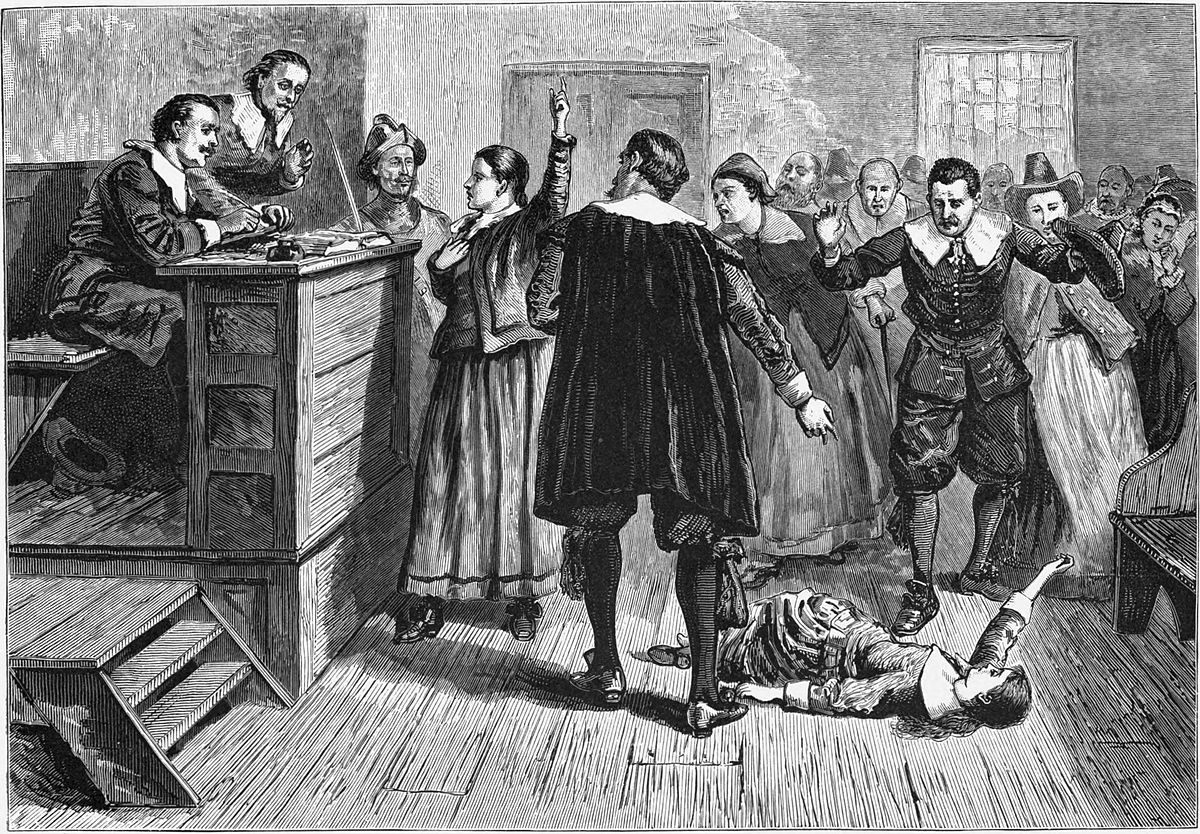Thursday
Recently there have been dubious instances of people accusing others of witch hunts. Donald Trump has called the Robert Mueller collusion investigation “the single greatest witch hunt of a politician in American history,” and Woody Allen, speaking of the sexual harassment charges against Hollywood producer Harvey Weinstein, has warned, “You also don’t want it to lead to a witch-hunt atmosphere, a Salem atmosphere, where every guy in an office who winks at a woman is suddenly having to call a lawyer to defend himself.”
As someone interested in Arthur Miller’s Crucible, I read Steve Hendrix’s Washington Post article about when and how the expression became common usage. Others applied the expression to politics before the play, but Miller cemented it in our minds.
First, however, a note on Woody Allen’s anxiety. From the training that everyone at my college undergoes every year, I can report that Allen here is being hysterical: winking, even if it does occur, does not lead to harassment charges. In organizations where there is a process (which apparently included neither The Weinstein Company nor Fox News), conversations are held and people are warned before action is taken (unless their actions are much severe than winking). The Hendrix article notes the irony of Allen pointing to women as witch hunters when traditionally they have been the victims.
Allen, in other words, is seeking to cast doubt on legitimate charges, not get at the truth.
According to Hendrix, “witch hunt” as a political expression has its origins in American hysteria about communism, going all the way back to the early days of the Bolshevik Revolution. Raymond Robbins, a Red Cross officer who witnessed the revolution up close, requested that a Congressional Investigatory Committee “deal with suspected Bolshevik sympathizers with intelligent action instead of in a ‘witch hunt’”:
Sen. Lee Overman (R-N.C.): “What do you mean by ‘witch hunt’?”
Mr. Robbins: “I mean this, Senator. You are familiar with the old witch-hunt attitude, that when people get frightened at things and see bogies, then they get out witch proclamations, and mob action and all kinds of hysteria take place.”
However, it would be a later investigation that, in conjunction with Miller’s play, would “forever weld ‘witch hunt’ into the political lexicon.” The phrase, Hendrix notes,
would become synonymous with McCarthyism, named for the Wisconsin senator who accused civil servants, soldiers and writers of traitorous communist ties with no proof.
One of those he would accuse, playwright Arthur Miller, would finally draw the circle from Sen. Joseph McCarthy all the way back to zealot judges of Salem with his acclaimed parable drama, The Crucible.
Trump’s practice of accusing his enemies of whatever he himself is guilty of—note his trumped-up charge about Barack Obama’s illegitimacy—means that the devil can turn even powerful indictments to his purpose. Unlike the judges in Miller’s play, however, special counsel Mueller appears to be investigating Trump in a sober and and grounded manner. It’sTrump who is rolling around on the ground screaming and pointing fingers in all directions.


